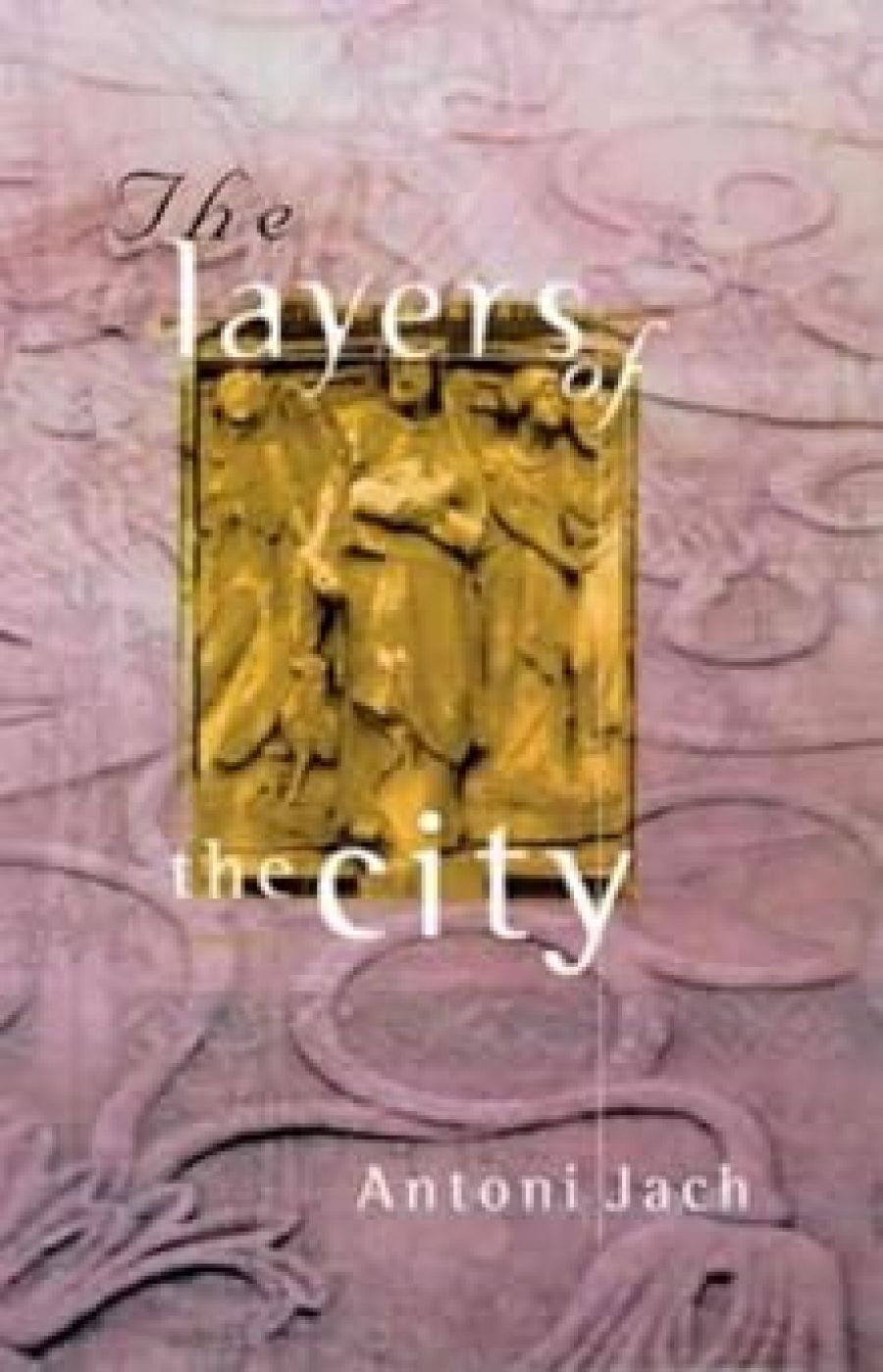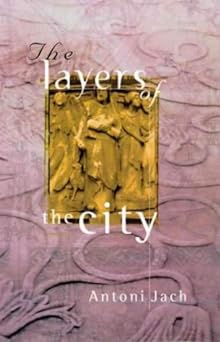
- Free Article: No
- Contents Category: Fiction
- Review Article: Yes
- Article Title: A Peculiar Vigilance
- Online Only: No
- Custom Highlight Text:
An unnamed visitor and note taker wanders present day Paris in Antoni Jach’s new novel, researching something about the city’s ‘many layers’. This amorphous and arduous quest brings him to a certain library where, while he is waiting for a book on aboveground Paris to be retrieved, a spirited American woman tries to draw him out on his work and why he’s in Paris. He airily responds that his interest lies not only in the city’s underground layers but ‘the buildings and the ether’. He’s remote and strangely earnest yet she’s keen to meet him again, whereas he ‘feels like a barbarian’ in her company and is too neurotically preoccupied with some other kind of engagement, an exchange with history, to flirt.
- Book 1 Title: The Layers of the City
- Book 1 Biblio: Sceptre, $19.95 pb, 272 pp
- Book 1 Cover Small (400 x 600):

Losing the woman, the burnt-out journalist/notetaker instead becomes hooked on the book wrongly delivered into his hands by the librarian on the epic struggle between the Romans and the barbarians in Southern Gaul around fifth century AD. Perhaps the first time in literature when a dust covered history book as against the promise of a sexual liaison altered the course of a character in a novel, but this sober turn of events neatly illustrates this novel’s rejection of perhaps the most commonly explored ground in contemporary fiction: the topography of love. Instead, Jach wrestles with ideas of history and man’s civilising self versus his barbaric impulses. What prevents this novel from being an exciting examination of this is at once simple and very complicated.
The note-jotting visitor, declining all offers of close personal involvement, dedicates himself to a peculiar vigilance in the ancient city which holds so much valuable historical information in its vaults and streets. He has a rigorous routine: library reading in the morning, a visit to Monoprix for food, then home to write in the afternoon. He records and ponders all kinds of sundry experience during his free hours of wandering, remembers odds and sods from Valery, Rilke (see Jach’s three-page bibliography), follows up all the leads and dead ends, the reliable waffle and waste a troubled middle aged man might have in his head. He is a silent notetaking zealot outside his home and language and compelled thereby, as if in retreat, into thought; indeed so lost there, so overwhelmed by terminal despair he must hang on to himself and to life with the only thing he owns reliably and intimately: the life raft of written language. He busies himself fashioning words and phrases into the comforting sonorousness of a hymn, into bald lists, into uneasy loop like declarations, into a lullaby for a guilt ridden late twentieth century male.
Were we, however, to understand Jach’s character in the shadow of Jach’s overarching personal universe and not, as I think we do, as an actual representation of it, The Layers of the City might resonate more powerfully in our minds; we might be released and disconnected just enough to fully appreciate him in his metaphysical whirl. But clever as Jach’s novel is in its details, it weighs heavy with the solemnity they’re rendered with. It lacks air, and becomes for us what the history book is to his character: an exotic but parched document.
The visitor must go down and backward to recover his own life. He descends into the archaeological crypt of the forecourt of Notre Dame, steps down through the Renaissance, the Middle Ages and into the age of the Romans and the barbarians and, like Carl Jung attempting a train trip to Rome, passes out in the darkness, into the pages of his precious book. He’s seeking ‘an important message’ there, a cure for his oblique modern-day afflictions, and reappears on the plains of Southern Gaul locked, first as a lawless marauding barbarian then as a vain Roman rhetorician, in a year long siege of a Roman walled city.
What Jach does well here is inhabiting these opposing worlds and making sense of their individual and symbiotic natures. We are inside a freer creation in these passages, and although the landscape of the novel continues to be wholly masculine and as dry as a bone, Jach is more successfully its independent creator. But whether one believes these two discrete sections of Jach’s book make a satisfying and competently structured novel is another matter.
The Layers of the City won’t countenance, indeed rejects the fundamental, parallel and equally demanding layers of the heart we would normally expect and associate with a novel investigating late century man in his psychic/ urban crisis. Jach snubs this part of himself and indeed of human civilisation for unknown reasons. His book suffers because of it. If life is anything like the way the American woman explains the city of Paris to her reluctant listener – ‘On top... it’s like a wedding cake. Underneath it’s a sewer’ – then Jach, disappointingly, has turned his back on the nuptials.


Comments powered by CComment